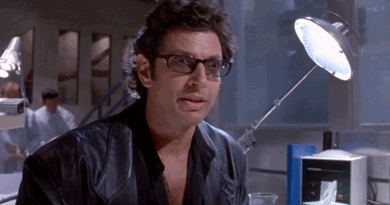A galaxy far, far away has finally come to the Middle Kingdom.
Disney’s latest Star Wars franchise
The Force Awakens debuted in China over the weekend, and took in an estimated $53 million,
the “biggest Saturday-Sunday box-office opening” ever in China, the studio said.
The film’s China performance is nothing next to its big triumph in the US where it generated
over $238 million in the opening weekend. Nor is it comparable to the China opening of action movie
Furious 7, which broke single day records for any film ever released in the country with a
$63.2 million gross last April.
That’s in part because the Star Wars franchise was, until recently, a western cultural phenomena unfamiliar to many Chinese—it’s not uncommon for people to mix up Star Wars with Star Trek in China. When the first film of the original Star Wars trilogy was screened in the US in 1977, China was still recovering from the chaotic Cultural Revolution, and western movies were banned as “spiritual pollution.” When the second trilogy appeared in China more than a decade ago, its film market was much smaller than it is now.
So for many Chinese moviegoers,
The Force Awakens is the first movie of the franchise they’ve ever watched.
Their feedback is mixed, judging from
Douban (link in Chinese), a popular entertainment website that is like a combination of IMDB and Myspace.
“I just could not tell the exact story line… The first half made me dizzy. The foreign princess made me excited but the story somehow became a reunion of the middle-and-old aged?,” one blogger wrote, referring to Leia.
China’s loyal Star Wars lovers reminisced like US fans. “The opening background and the familiar but aging characters really bring back my childhood memories,” one blogger wrote. Another wrote “I wish I could finish watching the franchise in my lifetime.”
“The story is still about transmigration, the chosen one who saves the world, the undying starring characters and an over dramatic robot,” another one wrote, “but I am still a big fan of [screenwriter and producer] J.J. Abrams. He successfully combined his style with the Star War traditions!”
After it bought Lucasfilm in 2012, Disney began aggressively promoting the Star Wars franchise in China.
Four decades late,
the original Star War trilogy was screened at the Shanghai International Film Festival last year. Stormtroopers will
stand with Mickey Mouse in the new Shanghai Disneyland, and Disney named Chinese pop star Lu Han (often described as China’s answer to Justin Bieber) the
official “Star Wars” ambassador and an honorary Jedi to tap his large fan base—mostly young Chinese girls. “Anything about you Lu Han, I will definitely go for it,” one female fan wrote
on Chinese microblog Weibo (link in Chinese, registration required).
After all the marketing hype, many Chinese moviegoers are also viewing the other six films of the Star Wars franchise, legally on Tencent’s QQ or via
pirated downloads. Some are learning that the saga is as much about politics and individuals fighting against a repressive government as light sabers and spacecraft—but the lesson they’re taking away isn’t
what George Lucas may have intended. “A democratic parliament seems to be chaotic while a dictator-run empire seems to be stable. That’s worth our thinking,” one blogger wrote on Douban.
“The Republic cannot control the military and the parliament so it’s fallen,” another wrote. “What can democracy do? It still depends on weapons!”

